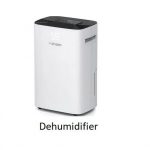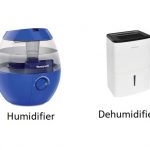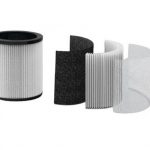What is an Air purifier and How it works?
An air purifier also known as an air cleaner is a device which removes dirt particles from the air in a room to improve its air quality. Air purifiers are most useful to people who suffer from allergies and asthma or who generally have breathing trouble when the room air is filled with contaminants.
What is the benefit of having an Air Purifier?
Generally speaking, air purifiers go a long way with helping sensitive people have a more comfortable time breathing in air. These people will not have the usual challenges like gasping for breathing that is commonly caused by contaminated air. Things like dust, pollen, mold spores and the usual allergens are cleaned from the air therefore greatly improving your air quality.
Common features of air purifiers (air cleaners)
- Clean Air Delivery Rate: measures how well air has been purified or rather how many particles are remaining in the air.
- Efficient area coverage; measures how much area the air filter can cover
- Air changes per hour; is a measure of how many times the air within the air purifier’s area of coverage is replaced.
- Energy usage; measure of the power consumption of the purifier
How an air purifier works?
Air purification can be done using active technology or passive technology.
The active air purifiers release negatively charged ions into the air that cause contaminants to get stuck to surfaces, while passive air purifiers use air filters to remove contaminants.
Passive purifiers are more efficient because all the contaminants are permanently removed from the air.
Air purifiers also contain a fan that sucks in and circulates air. While air is sucked in through the filter, contaminants and particles are captured and the clean air is circulated back out into the room.
High-efficiency Particulate Arrestance (HEPA) filters are generally more effective at removing large particles. Plus, HEPA filters do not emit ozone or harmful byproducts in the during operation.
Should you get an Air purifier?
Yes, it will certainly help if air contaminants around your home have been activating your allergies. Please keep in mind that even when you decide to get an air purifier, the following points should be part of your list when making a choice;
- Cost of the replacement filters
- Longevity of the filters
- the noise produced by the purifier
Featured Posts
Latest Posts
- 5 Best Humidifier For COPD
- 5 Best Humidifiers For Greenhouse
- 5 Best Humidifiers For Electric Heat
- 5 Best Humidifiers For Pregnant Women
- 5 Best Humidifiers For Yoga Studio
- 5 Best Humidifiers For Eczema
- 5 Best Air Purifiers with Permanent Filters
- 5 Best Air Purifier With A Humidifier
- 5 Best Air Purifiers For Resin Printing
- 5 Best Air Purifiers for Eczema
- 5 Best Air Purifier With Fan Combo
- 5 Best Air Purifier For Lung Disease
- 5 Best Humidifiers For Essential Oils
- 5 Best Humidifiers for Elderly
- 5 Best Humidifiers For Lash Extensions
- 5 Best Humidifiers For Cough
- 5 Best Humidifiers For Fireplace
- 5 Best Humidifiers for Humidor
- 5 Best Humidifiers For Pets
- 5 Best Humidifiers For Weed



